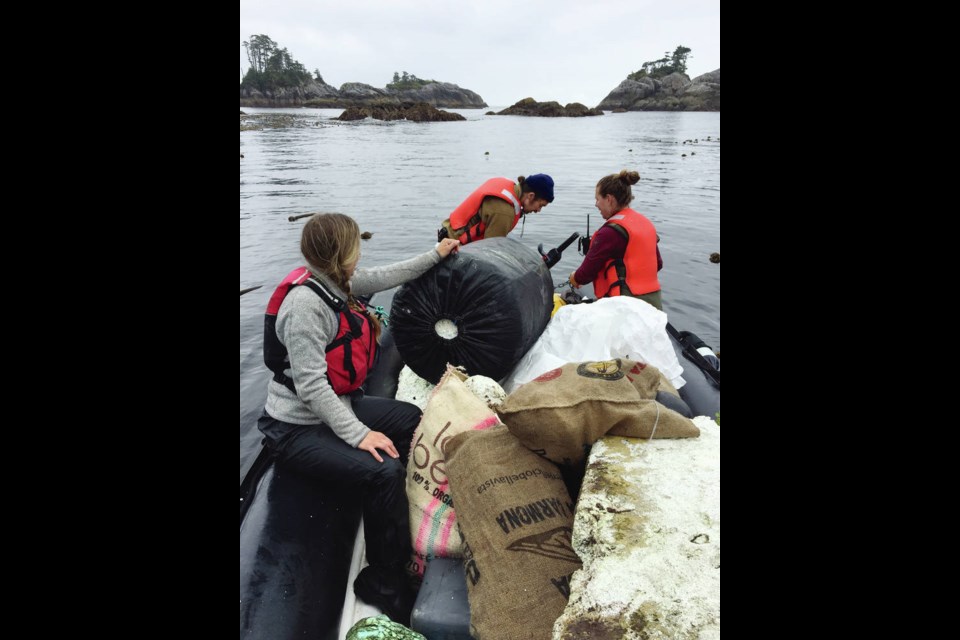Tourism ships normally loaded with adventure seekers heading to the Great Bear Rain Forest this time of year are now filling their hulls with plastic waste.
A fleet of nine boats has been combing about 1,000 kilometres of coastline along the ecologically sensitive home of the Spirit Bear, and expects to remove up to 100 tonnes of marine waste over the next several weeks. Marine debris will be taken to northern Vancouver Island for disposal in the Seven Mile Landfill.
It’s an innovative project by the small-ship companies, which had to cancel their lucrative tourism seasons amid the pandemic.
“When it became clear we would not be able to operate under normal circumstances this summer and had to cancel a sold-out season, we turned our attention to the environment to give back to the coast that sustains us,” Kevin Smith, CEO of Victoria-based Maple Leaf Adventures and co-lead on the project with Russell Markel of Outer Shores Expeditions, said in a statement.
“We dreamed up an initiative for which there weren’t yet any dedicated resources. It’s been really rewarding to work with our colleagues on this, together as friends, not competitors. We also applaud the Wilderness Tourism Association, coast First Nations and the Province of B.C. for their support in helping clean up our oceans, a positive story for this unprecedented time.”
The cleanup is being paid for as part of the province’s COVID-19 stimulus funding and will provide work for more than 100 crew and guides on nine ships, from five B.C. ecotourism companies. It will also employ a tug and barge and helicopter. A related in-shore cleanup done by members of Coastal First Nations communities will employ another 75 people.
The crews include scientists who are collecting data on the debris to be used by the Environment Ministry.
The fleet started cleanup operations on Aug. 18.
Removing marine debris and plastics is a priority under the global Oceans Plastic Charter and the UN’s sustainable development goals. It’s a priority for Indigenous governments and communities to sustain ocean health and protect food harvest.
“In these trying and uncertain times, the proposal and initiative provides a rare opportunity and a good news story,” Doug Neasloss, stewardship director with the Kitasoo-Xai’Xais Nation, said in a statement. “Marine debris is an on-going challenge and a removal initiative of this scale — to clean up a large, remote coastline — is an undertaking that will provide significant environmental benefit to Kitasoo/Xai’Xais territory and beyond.”
The Great Bear Rainforest’s outer coast is strewn with reefs, far from roads and communities, making cleanups challenging.
The Small Ship Tour Operators Association said it has seen first-hand how marine debris can pile up on remote beaches, only to be washed out into the ocean again during the next big storm.



